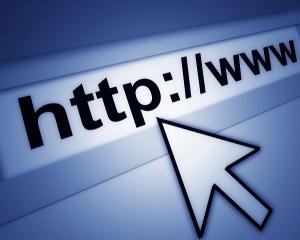Now that we're all connected, what we really need is some disconnectedness, writes William Powers.
Digital technologies are connecting the human race in so many astonishing ways, it's no exaggeration to say life itself is being transformed before our eyes.
But is life getting better?
In many ways, it is.
Computers, smartphones and other digital devices perform countless wonderful tasks for us, and have enormous potential to enrich our lives in the decades to come.
But in the past 15 years, we have unwittingly adopted a very particular philosophy for life in this new age: the more connected you are, the better.
I call it "digital maximalism", and I think it's a foolish way to live.
Why foolish?
Because when you're always staring at screens - your iPhone, your computer screen, your tablet, etc - you give up something that's enormously important in every facet of life: Depth.
Depth of thought, depth of feeling, depth of experience.
Without depth, everything we do suffers - from the smallest everyday task, to the personal relationships that matter most to us, to how we think and work.
In technologically advanced societies around the world, workers now sit at their desks all day shuttling crazily from emails to texts to tweets to Facebook updates to voicemails.
This endless cycle of distractions is making businesses, governments and other organisations less, rather than more, efficient - defeating the purpose the technologies were created for in the first place.
According to one study, information overload in the workplace is costing the United States economy alone nearly $US1 trillion ($NZ1.33 trillion) a year.
But far more important than our performance at work - and undergirding it - is the effect that screen addiction is having on our inner lives.
When you never stop to think about an idea for more than two minutes, when you can't focus on a single conversation or sustain the attention to read a book, when it's impossible to spend a quiet half-hour with your child without checking your cellphone, you really have no inner life at all.
You're living a completely external life, one that's dependent on and reactive to the world's demands.
This seems like a brand-new challenge, but in fact it isn't. Humans have been facing this same dilemma for thousands of years, every time a powerful new connective technology came along that filled everyday life with new people and information.
In ancient Greece, it was alphabet-based writing.
In the Europe of Shakespeare and Cervantes, it was the printing press.
In the 19th century, it was the telegraph, and in the 20th, telephone and television.
At each of these inflection points, there were astute thinkers who stepped back and saw that in order to make the most of connective technologies, you also have to know how to put some distance between yourself and the crowd.
As Socrates pointed out in the 5th century BC, happiness lies in achieving a balance between the inner life and the outer one.
It's exactly this balance that is now out of whack.
We can restore it by working some disconnectedness back into the equation.
The point is not to run away from our gadgets, which are wonderful and full of promise.
Rather, we just need to be more thoughtful about how we use them.
The first step is recognising that connectedness is better when it's offset by its opposite.
It's time to toss out the old maximalist philosophy and embrace a new one of balance.
What does this mean, in practical terms? It could be as simple as turning your cellphone off and putting it in a drawer for a few hours each day.
In the workplace, management can teach workers about the importance of spending time offline, and establish easy ways for them to do so.
In recent years, the Intel Corporation, which has played a leading role in connecting the world, has done trailblazing experiments in disconnectedness.
In some of its own offices, for instance, Intel instituted regular periods of quiet time when email and other distractions are shut down.
In the home, families could establish screen-free rooms or days of the week when the internet connection is turned off. My own family has been observing a ritual of disconnected weekends - the Internet Sabbath, we call it - for several years now.
After being offline for two full days, on Monday morning we return to the digital realm fresh, and enjoy it all the more.
A prediction: As the world becomes ever more connected and our lives grow busier, tools and experiences that help us disconnect will have a rising value.
Why are today's technologies designed to bombard us with as much information as possible at every moment?
In this regard, our screens could learn some tricks from older technologies, such as print newspapers and books, which allow us to be alone with our thoughts in a way we're seldom alone any more.
A half-hour spent with a hard-copy newspaper or book quiets the mind.
Couldn't our smartphones learn to do the same thing for us? Right now, curling up with an old-fashioned book is a vacation for the soul and, if we're lucky, a glimpse of the future.
William Powers, a former staff writer for The Washington Post, is an award-winning commentator on media and the information culture. His book, Hamlet's BlackBerry: A Practical Philosophy for Building a Good Life in the Digital Age, is published this month by Scribe.




